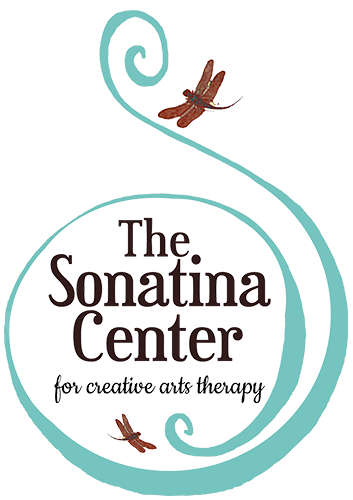What Therapist is a Good Fit for Me?
Welcome to Part 2 of our Therapy 101 Series! Over the next few weeks, we will be decoding the different types of therapy, how to find a therapist, payment options, and the mystical client-therapist relationship to help you find, finance, and feel supported in your wellness goals. At Sonatina, we believe in making therapy, mental health care, and wellness accessible to our community. While it often looks like sliding scale payments, scholarships and accessible facilities, it can also look like sharing our “insider knowledge” to help people make educated decisions about what they need.
Last post, we went through the different types of therapy, approaches to practice, and acronyms you might come across when looking for a therapist. Today, we are going to talk about how to choose a therapist that fits your needs and personality.
What Do All of the Letters Mean?
ATR: Art Therapist, Registered. Art therapists complete a Masters in Art Therapy and and use a variety of mediums and methods of art creation to encourage self-exploration, growth, and development of your everyday goals.
LCSW: Licensed Clinical Social Worker. LCSWs complete a Masters in Social Work, additional education and certification to provide diagnostic and counseling services.
LMFT: Licensed Marriage and Family Therapist. LMFTs complete a masters in Marriage and Family Counseling, additional education, and certification to provide diagnostic and counseling services.
LPC (Licensed Professional Counselor) or LMHC (Licensed Mental Health Counselor). Both complete a Masters in Counseling, additional education and certification to provide diagnostic and counseling services.
MT-BC: Board-certified music therapist. Music therapists complete a Bachelor’s or Equivalency in Music Therapy and use music listening, music making, music writing, and songwriting to encourage self-exploration, growth, and development of your everyday goals.
PhD/PsyD: Doctor of Psychology. They complete a doctoral program in counseling or psychology to provide enhanced diagnostic and counseling services.
MD/DO: Psychiatrists are medical doctors. They complete a doctoral program to provide medication management as well as psychological services.
What is Important About a Therapeutic Relationship?
Your relationship with your therapist is the biggest factor in your satisfaction, progress, and success in therapy. Therapy is a place to explore the pieces of your life that feel vulnerable, ashamed, guilty, afraid, and difficult. It takes time to built a relationship where you feel safe and supported to bring up emotional subjects. A healthy therapeutic relationship is built on trust, non-judgemental listening, mutual respect, and collaboration. Your therapist might have degrees and training but you are the expert on your own experience. You should feel supported and encouraged to continue the hard work of exploring yourself and growing as a person.
It’s normal to not “click” with everybody you meet. It is okay to try out a few therapists. It’s okay to tell your therapist that something in the relationship isn’t working. It’s okay to seek out a different type of therapy than what you currently have or have had before. When searching for a therapist, you may look for someone who shares similar identities with you or has experience in an area you need support in. You might want to ask them what their values are as a practitioner, how they view mental health, and how they structure their therapy sessions. You might ask them about their perspectives and actions towards justice-based practice, their affirmation of queer people, their beliefs about disability, their active anti-racism work. While it can be really tempting to go with the first therapist you find due to the long wait lists, limited cost-prohibitive options, or location, that doesn’t have to be your only option.
Places to Find Therapists
Psychology Today (Filter for your preferences)
Your Insurance Provider’s Directory
Affinity Organizations for Minoritized Providers
